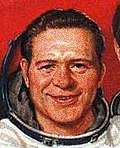Contents
- Incumbents
- Events
- January
- February
- March
- May
- June
- July
- August
- September
- October
- December
- Deaths
- January 2
- February 2
- March 2
- April
- May 2
- July 2
- See also
- References
| |||||
| Decades: | |||||
|---|---|---|---|---|---|
| See also: | |||||
Events in the year 2018 in Russia .
| |||||
| Decades: | |||||
|---|---|---|---|---|---|
| See also: | |||||
Events in the year 2018 in Russia .



| | This section needs expansion. You can help by adding to it. (September 2022) |

